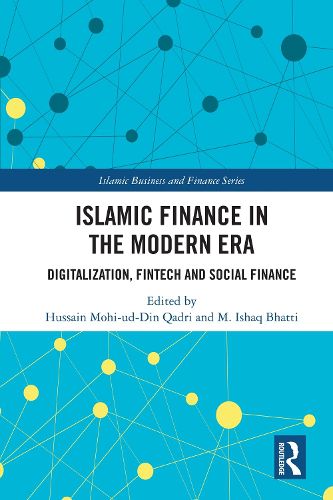Readings Newsletter
Become a Readings Member to make your shopping experience even easier.
Sign in or sign up for free!
You’re not far away from qualifying for FREE standard shipping within Australia
You’ve qualified for FREE standard shipping within Australia
The cart is loading…






This book focuses on recent developments in financial technology: specifically, how FinTech affects the Islamic finance industry. It examines the challenges of Shariah compliance and explores opportunities for riba-free finance.
The book describes contemporary FinTech solutions, investigating their relation to Islamic financial institutions. It outlines the current status of Islamic FinTech, arguing that it can provide Shariah-compliant innovative financial services to bridge the gap and compete with or complement conventional finance. Islamic FinTech can play a transformational role in making Islamic finance more accessible to a wide range of audiences and can also support the SME sector, which has been significantly impacted by the fallout of the COVID-19 pandemic.
First, the book addresses thematic issues in Islamic finance, including its role in poverty eradication, elevating SMEs, and the Islamic digital economy. Second, it examines Shariah-compliant instruments in Islamic finance. The final part encompasses the risk profile of Islamic finance products and explores mitigation strategies. The book simultaneously presents theories, practice, and key issues, introducing new ideas and perspectives to the Islamic banking and financial community.
The primary audience for the book will be researchers and scholars of Islamic economics and finance, and it will also appeal to practitioners and regulatory bodies.
$9.00 standard shipping within Australia
FREE standard shipping within Australia for orders over $100.00
Express & International shipping calculated at checkout
This book focuses on recent developments in financial technology: specifically, how FinTech affects the Islamic finance industry. It examines the challenges of Shariah compliance and explores opportunities for riba-free finance.
The book describes contemporary FinTech solutions, investigating their relation to Islamic financial institutions. It outlines the current status of Islamic FinTech, arguing that it can provide Shariah-compliant innovative financial services to bridge the gap and compete with or complement conventional finance. Islamic FinTech can play a transformational role in making Islamic finance more accessible to a wide range of audiences and can also support the SME sector, which has been significantly impacted by the fallout of the COVID-19 pandemic.
First, the book addresses thematic issues in Islamic finance, including its role in poverty eradication, elevating SMEs, and the Islamic digital economy. Second, it examines Shariah-compliant instruments in Islamic finance. The final part encompasses the risk profile of Islamic finance products and explores mitigation strategies. The book simultaneously presents theories, practice, and key issues, introducing new ideas and perspectives to the Islamic banking and financial community.
The primary audience for the book will be researchers and scholars of Islamic economics and finance, and it will also appeal to practitioners and regulatory bodies.